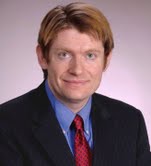He is a free trader. Which is what makes it so interesting that a good look at what he has to say actually reveals a lot about what’s wrong with free trade. (I apologize in advance to Prof. Reinhardt if I have misunderstood anything he said.)
For example, he writes:
Public discussions on foreign trade sometimes convey the impression that China and the rest of the world make everything, as the United States sits idly by, importing their stuff and going to hell in a handbasket, to use the vernacular. .. Goods and services produced here still represent the great bulk of gross domestic product in the United States.
Technically, he is correct. Well over 80% of what America consumes is produced in America. Unfortunately… this metric is totally irrelevant to whether free trade is good for us or not. It doesn’t prove a thing either way. (Anyone who thinks it does is welcome to write me and explain why.)
Therefore, because free trade—or America practicing it while our major trading partners practice mercantilism — arguably causes this trade deficit to happen, free trade is doing us harm. Over time, it leaves us poorer than we would be if we obtained reciprocity under some kind of managed-trade regime.
Bottom line: even if “Everything in made in China now!” is a myth, we’ve still got a big problem.
Next up, let’s try this assertion by the good professor:
After all, imagine what life would be like in the United States in the absence of foreign trade, with all products we use daily made domestically—many would be far more expensive than they currently are, and many would be likely to be of inferior quality to those now available.
Talk about a straw man! I don’t know of a single protectionist in the United States who literally proposes to abolish imports entirely. That strange philosophy is found only in places like North Korea, which does (at least pretend to) ban imports on grounds of its ideology of juché or self-reliance.
Now let’s look at an assertion that doesn’t constitute a falsehood on the professor’s part per se, but does expose a big falsehood that free traders spout all the time. Discussing what to do about people who are harmed by free trade, he writes:
A far better approach would be to have in place a solid, general economic safety net that helps all families whose economic base is disrupted through forces beyond their control, whether such disruptions originate in foreign trade or domestic developments.
 The problem here is all the libertarians and small-government types who like free trade because they think it means the absence of government interference in our lives. This is an appealing philosophy and not without merit, but they’re wrong in the case of free trade. As Prof. Reinhardt notes, even if free trade is a good thing, it’s not a small-government policy. To function, even as free traders like him assert it should, it needs big government to step in and clean up the various messes it makes.
The problem here is all the libertarians and small-government types who like free trade because they think it means the absence of government interference in our lives. This is an appealing philosophy and not without merit, but they’re wrong in the case of free trade. As Prof. Reinhardt notes, even if free trade is a good thing, it’s not a small-government policy. To function, even as free traders like him assert it should, it needs big government to step in and clean up the various messes it makes.
Bottom line? Free trade isn’t economic freedom, it’s laissez faire on life support from big government. (Wall Street, didn’t we see this movie before?)
Prof. Reinhardt deserves a tip of the hat for being honest about this fact. He has a similar (true, but tending to debunk his own side) point here:
Whether a fellow American gains from a trade or someone in Shanghai does not make any difference to most economists, nor does it matter to them where the losers from global competition live, in America or elsewhere.
The issue here isn’t that economists ought to be America First nationalists. That’s a matter of political opinion, and they’re entitled to whatever ideological leanings they fancy. Instead, the issue is twofold:
First, granted, it is indeed arbitrary from the point of view of pure economic science whether a given policy is good for America or Timbuktu. But it’s equally “arbitrary” that I’m me and you’re you! I don’t balance my checkbook for my own financial benefit because of some ideological conviction that I’m special; I do it because I’m me, just as you do. (And just as I must assume most of these oh-so-cosmopolitan economists do.)
Second: it is really easy to use the nation-agnostic objectivity of pure economics to slide into the argument that we somehow shouldn’t care about national economic well-being. But that doesn’t follow. From the point of view of pure economics, internationalism is just as much an arbitrary ideological assumption as nationalism. Just because biology can’t take sides between diseases and the people that diseases kill, doesn’t mean medicine can’t. Indeed, medicine is crazy if it doesn’t.
So while we can all thank Prof. Reinhardt for opening up some needed public debate about free trade, he’s dreaming if he thinks it’s settled in favor of free trade.
linkwithin_text=’Related Articles:’


Be the first to comment on "Holy Cow! A Real Debate About Free Trade"